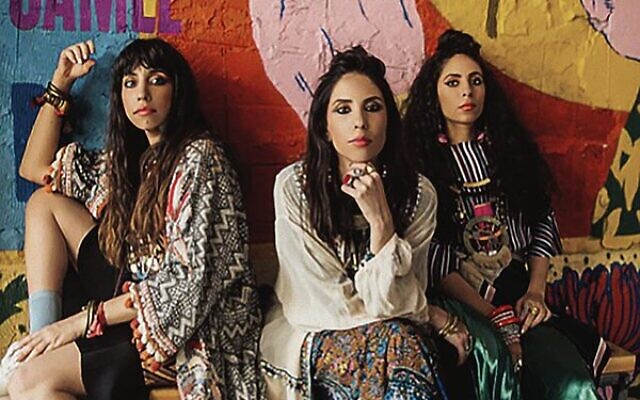Stories of Mizrahi and Sephardi women
Feeling forever silenced, Loolwa Khazzoom is quiet no more. Khazzoom whose heritage is part of the fabric of her very being, has updated her anthology, The Flying Camel, proving that not all Judaism is Ashkenazi.

When Loolwa Khazzoom reached out with her anthology, The Flying Camel, something in me screamed “Yes!” Because I could somewhat relate to her story.
While I haven’t experienced the marginalisation or taunting that she did as a child, for most of my life, outside of my home, my experience, and everything I was taught, was Ashkenazi Judaism. Going one step further, when Judaism is portrayed on screens, it is Eastern European.
But it’s this very notion that Khazzoom has spent most of her life trying to quash. Because, as she said over the phone from her home in the US, “we’re important”.
Believing that the world had been cheated of the rich cultural education about Mizrahi and Sephardi Judaism, in 1990, Khazzoom started offering unique workshops hoping to show people that we need to learn about, embrace, and celebrate everybody.
“We are one Jewish people from all over the world, from every single place that Jews have been in Africa, the Middle East, Asia, Latin America,” she said. “I envisioned something where we would all celebrate everybody’s heritage.”
One thing that resulted from Khazzoom’s passion for education was an anthology of writing by women like her, many of whom she said, ended up seeking her out once word got out that she was compiling the writings. Despite being rejected by multiple publishers over the years, in 2003, the first edition of The Flying Camel: Essays on Identity by Women of North African and Middle Eastern Jewish Heritage was released. Two decades later, the anthology has been re-published.
The anthology, Khazzoom says, is made up of personal stories rather than academic texts, almost like each contributor is saying “pour yourself a cup of tea and let me tell you about my life”. People can relate to the stories.
The 2022 version includes an updated introduction, an appendix of Khazzoom’s poems and a study guide, which Khazzoom hopes will encourage more varied lessons.
“You are a product of your own Jewish education. It’s not your fault that you don’t know about Jews from Ethiopia, or from India or Brazil,” she said.
The anthology features stories of women with origins in Libya, Morocco, Yemen, India and Tunisia among others, and explains how while some learned about their heritage through the love and warmth of their family members, others felt like perpetual outsiders, the only ones who were different from their friends and the “normal” cultural narrative.
While that narrative is slowly changing, the stories are still as relevant as they were when Khazzoom collected them.
“For people of our background, as a mirror, a validation, an inspiration, motivation … you do exist, you do matter,” she said.
“But also, I want this to open eyes and open people’s hearts.”
As Khazzoom says, everything she does is influenced by her Iraqi Jewish heritage. “It’s in my bones.”
“Unlike what that spate of rejection letters told me three decades ago, we are relevant, and we have important things to say – not only to ourselves, and not only to each of the communities to which we belong, but to the world. What’s more, our insight, wisdom, and unique consciousness is present not only in matters directly related to identity, history, and community, but to everyday living. So, I want the 2022 anthology to usher us into a realm far beyond the basic conversations asserting our existence and the “special programs” honouring our traditions.
“I want to create space for our complexity and messiness and beauty to be expressed and to be honoured, as they shine through the many different ways we choose to walk through the world.”
For more information, visit khazzoom.com

comments